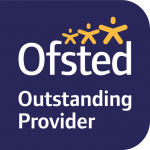The aim of the Early Years Pupil Premium is to close the gap between children from disadvantaged backgrounds and other children by providing additional funding to settings such as ours, therefore providing the opportunity to raise the quality of provision we offer.
All children aged three and four (not two-year olds), who meet the eligibility criteria will benefit from the funding. This funding is paid directly to us on an hourly rate basis, linked to claimed hours for entitled children. The annual value for a 15-hour place over a full year is just over £300 and since we are registered to offer Early Years places we can receive the EYPP. In order to be able to claim this funding we require parents to tick the back of the Parent Declaration / Funding Form and to complete the section, which asks for their dates of birth and National Insurance numbers.
Which three-and four-year-olds will be eligible for the EYPP?
A child will be eligible for the EYPP if they:
Are in a low-income family and their parents are in receipt of benefits (one or more), for example, Child Tax Credit and Income Support;
Have been adopted from care;
Have left care through special guardianship;
Have been looked after by the local authority for at least the span of one day;
Are subject to a child arrangement order.
As an Early Years setting we have the freedom to choose how we spend the money to best support disadvantaged children in our care.
Ladybird Forest Pre-School will use the additional funding in the following ways:
Continue our commitment to furthering our knowledge within our Continuing Professional Development by attending relevant training.
Provide home visits to families that include an ‘educational gift’ which aids transition into our setting.
Creating ‘Home Bags’ lending bags based around the Early Years Foundation Stage areas of learning with a disposable camera to take photos.
Providing additional staff to allow us to provide more acceptable child: adult ratios.
Purchasing additional resources.
Measuring the impact of the EYPP.
We are continually reviewing the data we collect on children’s attainment and updating our strategies to support children who are falling behind or in danger of doing so. The practical ideas that are implemented on a daily basis are only a few of the strategies used and their success can be monitored through the data. However, there are other ways that we measure and monitor the impact we have on families. These include:
Parent questionnaires;
Informal conversations at the start or end of a day;
Parent feedback provided through the Tapestry accounts regarding children’s Learning Journals;
Formal consultations;
Conversations with professionals we work alongside to support families;
Home diary to communicate with families.

